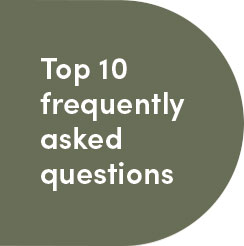
Posted on October 3, 2022

Unless you have been living under a rock, you will be aware of the draft law aiming to
provide a framework for fair pay agreements (FPAs). What does it all mean?
Here are our top 10 FAQs and our straightforward answers:

SPACE
Q: What is an FPA?
A: An agreement between a union and a group of employers in one industry/occupation, setting minimum employment terms.
An FPA is not an employment agreement in itself, and it would cover employees regardless of whether they are on a collective or individual agreement. So, regardless of whether your business employs any union members or has a collective agreement, your workers could still be covered by an FPA.
Q: What employment terms could be covered by an FPA?
A: Minimum employee entitlements. First it would set out who it covers, and then the FPA’s start and end dates. It would then deal with hours of work, wage rates (including overtime and penalty) and superannuation entitlements. It may also cover other terms, e.g. redundancy compensation and leave.
One FPA can apply to employees in different roles, with different hours and different pay arrangements.
Q: What industries are likely to have an FPA?
A: Those where workers have low wages or are seen as vulnerable.
Q: How would bargaining for an FPA start?
A: A union or unions would start the FPA process for a particular occupation/industry.
To do this, the union or unions must show that bargaining for an FPA had support from at least 10% or 1000 of the employees who would be covered or show there is a “public interest” in having an FPA for a certain industry/occupation e.g. because workers in that industry are low paid or vulnerable. Once the threshold is met, the union(s) must apply to MBIE to initiate bargaining.
The union or unions would represent the employees. The employers in the relevant industry would appoint a representative to bargain for their collective interests. It is not one representative per employer.
Q: What if the representatives of the unions and employers could not agree to FPA terms?
A: Parties go to mediation or apply to the Employment Relations Authority to set the FPA’s final terms.
Q: How is a proposed FPA finalised?
A: When a simple majority of covered employers and employees vote in favour.
Q: How does a FPA affect other contractual agreements with employees?
A: It is intended that FPA terms would prevail if they are more favourable than those in an individual or collective employment agreement. Other existing terms continue unaffected.
Q: If the industry my business is in was covered by an FPA can I decline to be covered by it?
A: Once an FPA is in place, an employer in a business that is covered cannot opt out. However, you can apply to delay coverage if you can show that the business would suffer significant financial hardship.
Q: When will this law pass?
A: Possibly before the end of this year. The draft law was introduced on 29 March 2022 and public submissions are currently being considered.
If the government doesn’t manage to get it passed in 2022 it may run out of time before the 2023 general election and risks this not getting off the ground at all or having it reversed before it has any real effect, if it loses the election.
Q: What is the likely impact of FPAs for employers in affected industries?
A: New Zealand employers currently have significant flexibility to agree terms that suit their employees and business within minimum legislative boundaries. FPAs would remove some of that flexibility in some industries.
Any business in an industry covered by an FPA is likely to see an increase in administrative and staff costs, so this would be a significant factor, for small business in particular. Some parties are worried that FPAs could result in anti-competitive bargaining by the larger players and/or general unfairness for small businesses, with only the larger players being able to afford to operate.


